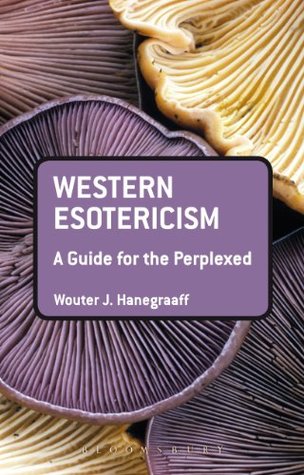More on this book
Kindle Notes & Highlights
Read between
June 21 - September 5, 2018
Somehow it does not really look like ‘religion’ as commonly understood, but it does not appear to be a form of ‘philosophy’ either, nor would it be accepted as ‘science’ today. Nevertheless it participates in all these fields, as well as in the arts, and yet it cannot be reduced to either of them and has been seriously neglected by all.
Faivre’s notion of ‘correspondences’ has its ultimate origin in Plotinus’ notion of sympathy:5 it suggests that all parts of the universe are interrelated without a need for intermediary links or causal chains, and is therefore clearly meant as an alternative to linear or instrumental causality. ‘Living nature’ stands against mechanistic worldviews as well: it means that the world is conceived of as a living organism permeated by an invisible life force, not as a dead mechanism or clockwork. The notion of ‘imagination/mediations’ suggests a multi-leveled Platonic cosmology as opposed to a
...more
The origins of Western esotericism are in the Hellenistic culture of late antiquity, marked by complicated mixtures between Greek philosophy and indigenous religious traditions, especially those of the Egyptians.
century. Up to the first decades of the eighteenth century, Freemasons were widely perceived as Rosicrucians and practitioners of alchemy; and the brotherhood attracted much curiosity because of suspicions that it might have preserved the mysterious secrets of antiquity, including that of the philosophers’ stone. In England, Freemasonry distanced itself from such esoteric pursuits as it developed into an essentially rationalist and humanitarian movement after the foundation of the Premier Grand Lodge of England in 1717. But in other countries, notably France, the concern with alchemical and
...more
as Platonic Orientalism: the widespread belief that Plato had taught not just philosophy but an ancient religious wisdom, rooted not in his own Greek culture but ultimately derived from the most ancient and venerable traditions of the Orient. Egyptians pointed to Hermes Trismegistus as the original fountain of such ‘ancient theology’, Persians to Zoroaster, Greeks to Orpheus or Pythagoras;
Faivre distanced himself from religionism during the 1990s, but his definition has exerted a very strong influence on the historically oriented scholarship that has emerged during the last two decades.
Students in the fields of religion, philosophy and science must therefore make up their minds about whether they want to be gardeners or biologists. If they prefer the former, then the study of Western esotericism is not for them.
information. Readers should be aware of a religionist subtext that implicitly minimizes the importance of historical context, change and innovation in order to present ‘the Western esoteric traditions’ as one single, enduring worldview or spiritual perspective, defined by ‘intrinsic philosophical and religious characteristics’ and ultimately grounded, according to the author, in ‘spirit and spirituality as an independent ontological reality’


